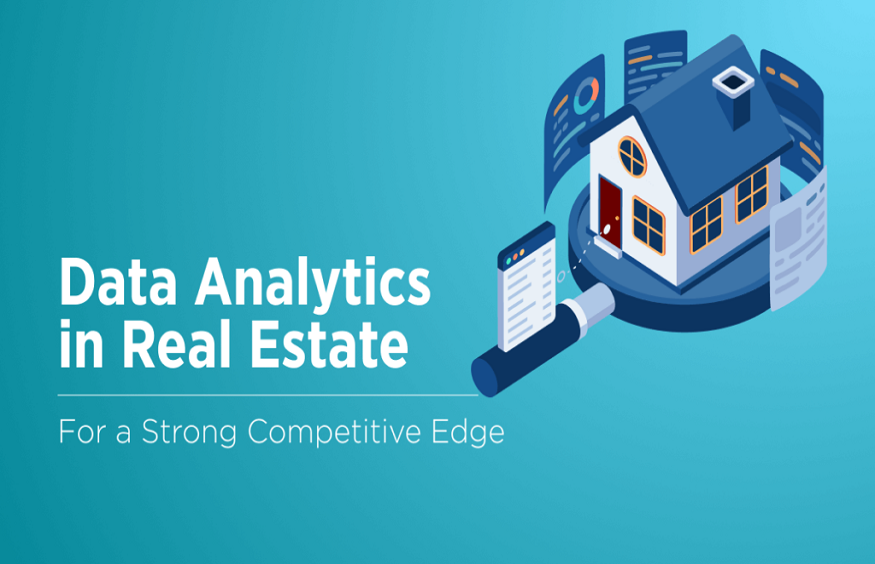As a real estate license Texas holder, you understand the importance of making informed decisions to succeed in this competitive industry. With RealestateU and its guidance, you will be able to better understand how data analytics has emerged as a powerful tool that can provide valuable insights to guide your real estate business. By harnessing the power of data, you can gain a competitive edge, identify profitable opportunities, and make strategic decisions.
Understanding Data Analytics
Data analytics involves collecting, cleaning, and analyzing large datasets to uncover patterns, trends, and insights. In the context of real estate and being a real estate license Texas holder, you just know that data analytics can be applied to various aspects of the business, including property valuation, market trends, customer behavior, and investment opportunities.
Key Applications of Data Analytics in Real Estate
1. Property Valuation:
- Comparable Sales Analysis (CSA): By analyzing historical sales data of similar properties, you can accurately assess the market value of a property. Data analytics tools can automate the process of identifying comparable properties and adjusting for factors like location, size, condition, and recent market trends.
- Automated Valuation Models (AVMs): AVMs use advanced statistical techniques to estimate property values based on various factors, such as property characteristics, market trends, economic indicators, and recent sales data. By leveraging AVMs, you can quickly and efficiently generate accurate property valuations.
2. Market Trend Analysis:
- Identifying Emerging Markets: Data analytics can help you identify emerging markets with high growth potential. By analyzing demographic trends, economic indicators, infrastructure development, and recent market activity, you can spot areas that are likely to experience significant appreciation.
- Predicting Market Cycles: By studying historical data and current market conditions, you can predict future market trends. This information can help you make informed decisions about buying, selling, or investing in real estate.
3. Customer Behavior Analysis:
- Understanding Buyer Preferences: By analyzing customer data, you can gain insights into buyer preferences, demographics, and behaviors. This information can help you tailor your marketing strategies to attract the right buyers.
- Predicting Buyer Intent: Using advanced analytics techniques, you can predict which leads are most likely to convert into sales. This allows you to prioritize your efforts and focus on the most promising opportunities.
4. Investment Analysis:
- Risk Assessment: Data analytics can help you assess the risks associated with real estate investments. By analyzing factors like property location, market volatility, economic indicators, and historical performance, you can make informed investment decisions.
- Return on Investment (ROI) Analysis: By calculating the potential ROI of different investment strategies, you can identify the most profitable opportunities. Data analytics can help you accurately estimate rental income, property appreciation, maintenance costs, and other relevant factors.
5. Portfolio Management:
- Performance Tracking: Data analytics can help you track the performance of your real estate portfolio. By analyzing factors like occupancy rates, rental income, and property values, you can identify areas for improvement.
- Diversification Analysis: By analyzing the diversification of your portfolio, you can identify potential risks and opportunities. Data analytics can help you assess the correlation between different properties and asset classes.
The Power of Predictive Analytics
One of the most exciting applications of data analytics in real estate is predictive analytics. By analyzing historical data and identifying patterns, you as a real estate license Texasholder can forecast future trends in California and make proactive decisions. For example, you can:
- Predict future property values: By analyzing historical sales data, market trends, and economic indicators, you can forecast how property values may change over time.
- Identify emerging markets: By analyzing demographic trends, infrastructure development, and economic indicators, you can identify areas with high growth potential.
- Forecast rental demand: By analyzing historical rental data, economic indicators, and demographic trends, you can predict future demand for rental properties.
- Assess the impact of external factors: By analyzing data on factors such as interest rates, inflation, and employment rates, you can assess the potential impact of these factors on the real estate market. This information can help you adjust your strategies accordingly.
Challenges and Considerations
While data analytics offers significant benefits, it is essential to be aware of the challenges and limitations. Data quality, privacy concerns, and the complexity of real estate markets can pose challenges. To overcome these challenges, it is crucial to:
Data Quality and Management
- Data Cleaning and Validation: Ensure that your data is clean, accurate, and up-to-date. This involves removing duplicates, correcting errors, and filling in missing values.
- Data Standardization: Standardize data formats and units of measurement to facilitate analysis and comparison.
- Data Governance: Establish data governance policies and procedures to ensure data quality, security, and compliance.
Privacy and Ethical Considerations
- Data Privacy Regulations: Adhere to relevant data privacy regulations, such as GDPR and CCPA, to protect sensitive information.
- Data Minimization: Collect and store only the necessary data to minimize privacy risks.
- Transparent and Ethical Use of Data: Use data ethically and transparently, avoiding bias and discrimination.
Real Estate Market Complexity
- Local Market Dynamics: Understand the unique dynamics of local real estate markets, including economic factors, demographic trends, and regulatory environments.
- Contextual Analysis: Consider the broader context of real estate markets when interpreting data-driven insights.
- Human Expertise: Combine data analytics with the knowledge and experience of real estate professionals.
Technology and Skills
- Stay Updated: Keep up with the latest advancements in data analytics tools and techniques.
- Develop Data Skills: Invest in training and development to acquire the necessary data skills.
- Collaborate with Experts: Work with data scientists and analysts to leverage their expertise.
By addressing these challenges and considerations, you can harness the power of data analytics to make informed decisions and achieve success in the Texas real estate market.
The Future of Data Analytics in Texas Real Estate
As technology continues to advance, the role of data analytics in real estate will only grow. By embracing data-driven decision-making, you can gain a competitive edge, improve efficiency, and achieve greater success in the Texas real estate market.



